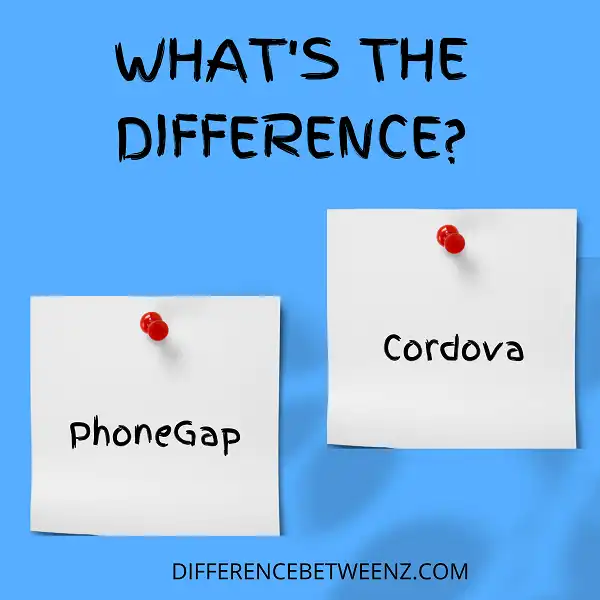Are you considering using a mobile app development platform but don’t know where to start? Look no further! In this blog post, we’ll discuss the differences between PhoneGap and Cordova – two powerful platforms for creating cross-platform mobile apps. Both of these frameworks have different advantages and disadvantages, so learning about them will help you decide which one best suits your needs. We’ll cover topics such as how they’re similar or different from each other, what features each framework offers, and more. So dive in to find out everything you need to know about these two popular mobile application development tools.
What is PhoneGap?
- PhoneGap is a powerful platform for mobile app development that allows developers to use HTML5, CSS3, and JavaScript web technologies to create cross-platform applications for Android, iOS, Windows Phone, etc.
- PhoneGap enables the rapid deployment of applications without having to write code in each native language; apps may be created just once and instantly deployed to all platforms.
- PhoneGap proves incredibly useful as it removes the need to learn each individual platform’s languages and tools while still allowing robust apps to be built quickly and efficiently. PhoneGap is rapidly becoming one of the most popular platforms for creating mobile applications due to its ease of use and convenience.
What is Cordova?
- Cordova is a powerful platform for building native mobile applications using HTML, CSS, and JavaScript. Cordova’s core goal is to give developers the ability to write one codebase that can be deployed across multiple platforms, including iOS, Android, Windows, and more.
- Cordova uses popular web technologies such as HTML, CSS, and JavaScript by wrapping them in a native application container which allows access to device capabilities that would otherwise not be available.
- Cordova is becoming increasingly popular amongst developers for its cross-platform compatibility, its host of tools for debugging and testing apps, and its comprehensive API library. Cordova provides an environment for the efficient development of cross-platform mobile apps with the potential to reach millions of users.
Difference Between PhoneGap and Cordova
PhoneGap and Cordova are both popular tools for the development of hybrid mobile applications, but there is a key distinction between the two.
- PhoneGap is an open-source development framework built on top of Apache Cordova which uses HTML5, CSS3, and JavaScript for cross-platform mobile application development.
- On the other hand, Cordova is based on web technologies such as HTML, CSS, and JavaScript and allows users to create native apps using existing web technologies while PhoneGap supplies additional features such as access to device features like camera, GPS, etc., libraries and different backend services like push notifications.
- PhoneGap also offers several plug-in options that provide extra functionality that may not be available in natively developed apps.
In conclusion, PhoneGap can be seen as an extension or wrapper of Cordova that provides additional features to help with mobile application development across multiple platforms.
Conclusion
PhoneGap and Cordova are both frameworks used for developing mobile apps. They share a lot of similarities, but there are some key differences worth noting. In general, Cordova is more popular with big businesses because it offers more features and support. PhoneGap is better for smaller businesses who want to use existing code or don’t need all the extra bells and whistles that Cordova provides.


